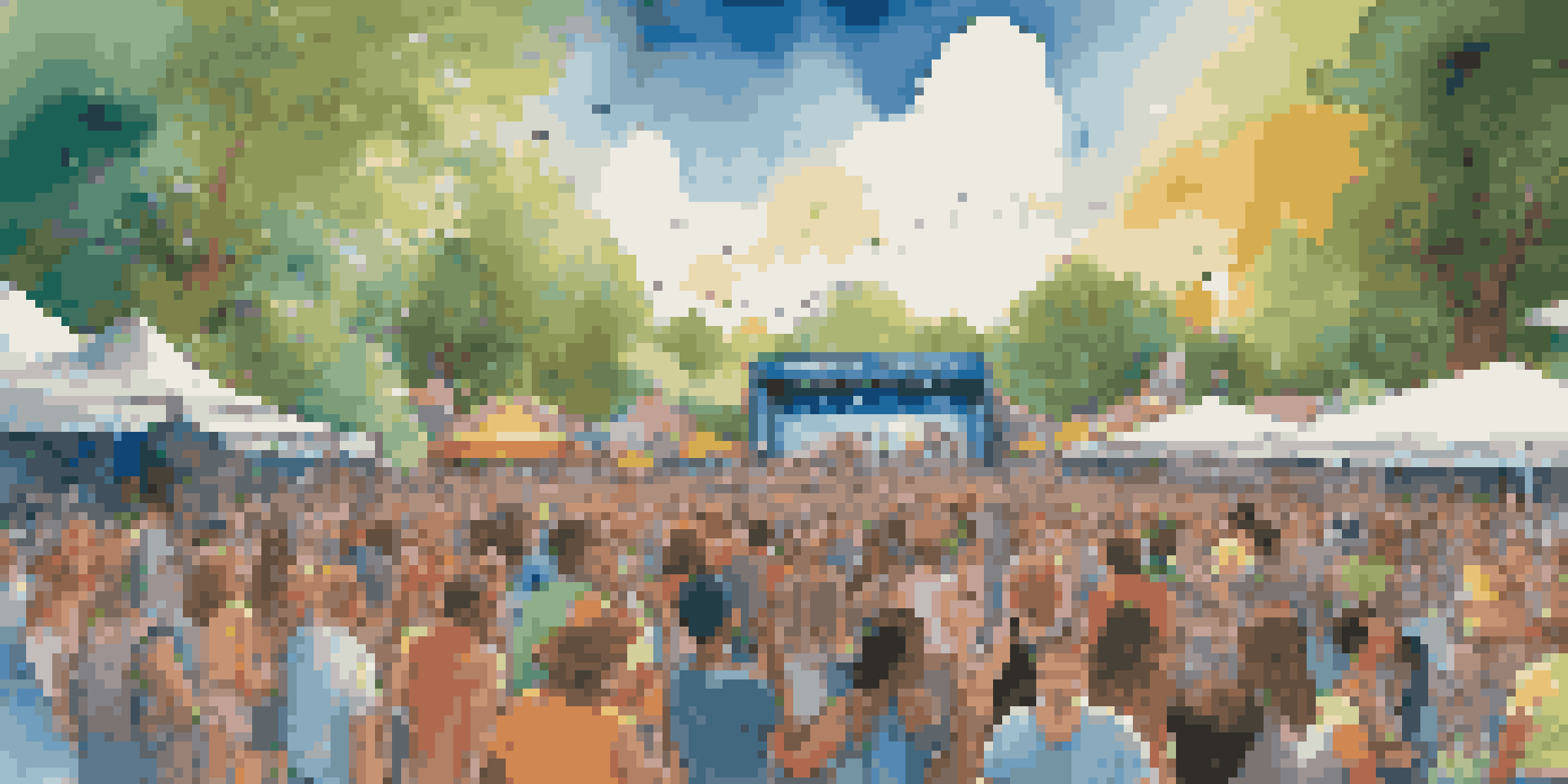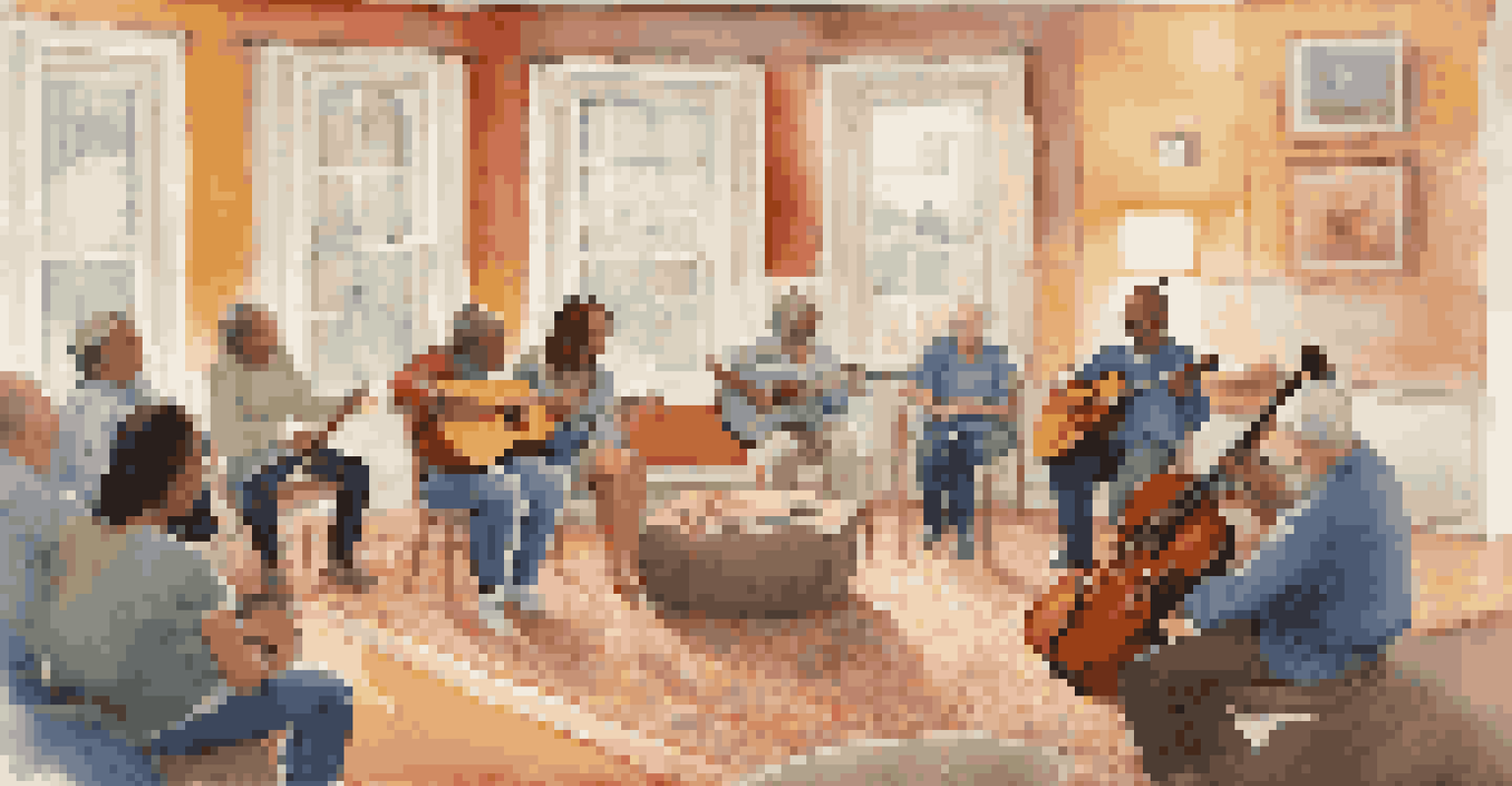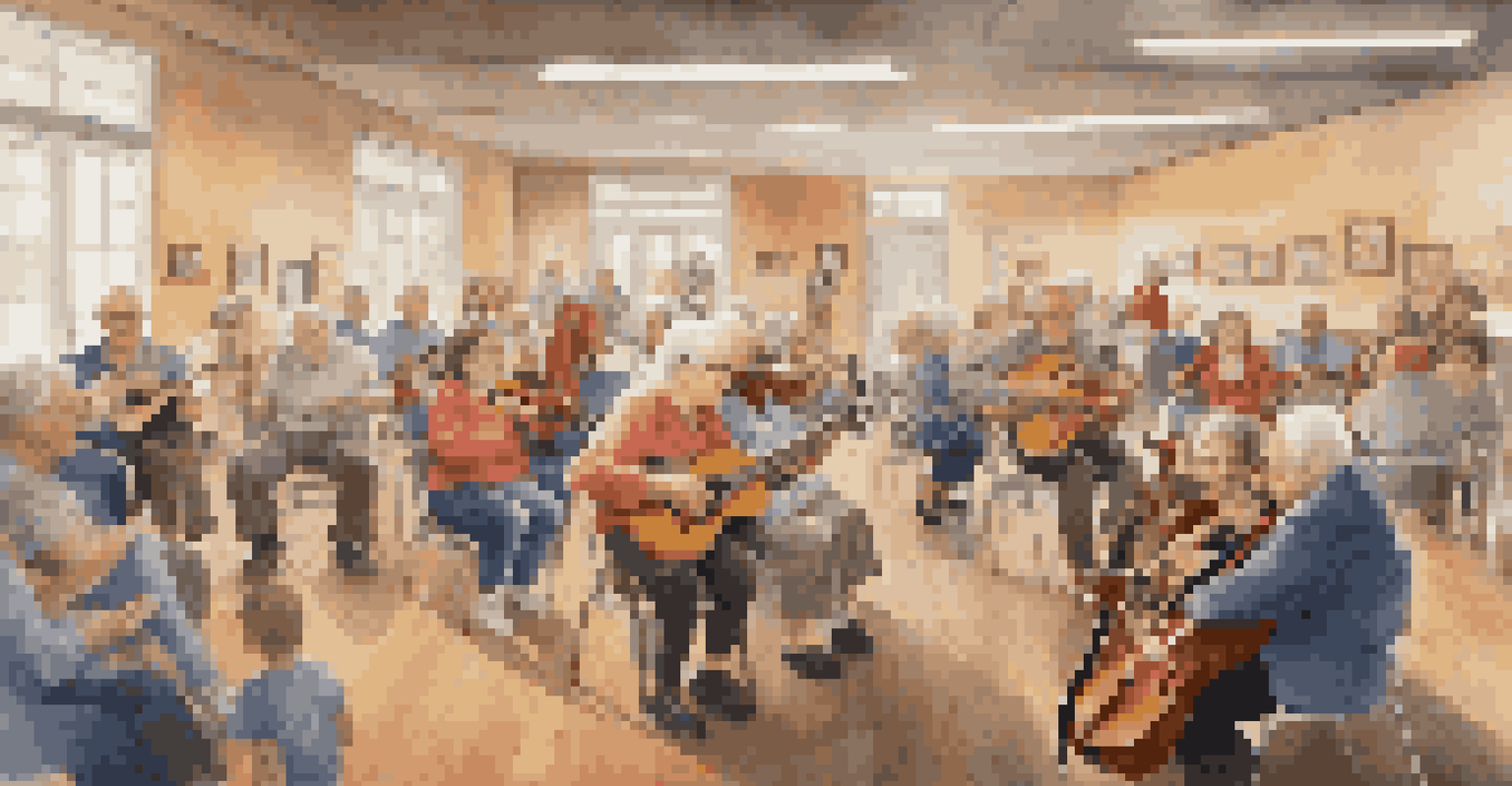A Symphony of Support: Music's Role in Community Bonds

The Universal Language: Music Unites Us All
Music has an incredible ability to transcend language barriers, creating a universal connection among people. When we listen to a song, we might find ourselves tapping our feet or humming along, regardless of where we come from. This shared experience can spark conversations and forge friendships, reminding us that we are all part of a larger community.
Music can change the world because it can change people.
For instance, think of a local concert where people from different backgrounds gather to enjoy the same performance. In that moment, they are united by a common passion, creating a sense of belonging and camaraderie. This bond can extend beyond the event itself, leading to lasting relationships that continue to enrich the community.
Ultimately, music serves as a powerful reminder of our shared humanity, encouraging us to come together and celebrate our differences while recognizing our similarities. It lays the groundwork for meaningful connections that can thrive in any neighborhood.
Local Music Scenes: Cultivating Community Unity
Local music scenes often play a vital role in fostering community unity. From open mic nights at coffee shops to summer music festivals in the park, these events provide opportunities for residents to come together and support local talent. They not only showcase the diverse musical talents within the community but also help build a sense of pride among residents.

When people engage with local musicians, they often feel a deeper connection to their community. It's through these shared experiences that individuals can meet neighbors, exchange stories, and strengthen their ties to one another. This sense of belonging can be especially important in urban areas where people may feel isolated.
Music Unites Diverse Communities
Music transcends language barriers, fostering connections and friendships among people from different backgrounds.
As these local music events flourish, they create a ripple effect that encourages collaboration and creativity. Musicians, artists, and community members can work together to organize events, share resources, and foster a vibrant cultural landscape that everyone can enjoy.
Healing Harmonies: Music as a Therapeutic Tool
Music is not only a source of joy; it can also serve as a therapeutic tool that promotes healing and well-being. In community settings, music therapy programs offer a safe space for individuals to express their emotions and connect with others who may be experiencing similar challenges. This shared journey can foster empathy and support among participants.
Where words fail, music speaks.
For example, community centers often host music therapy sessions for various groups, including seniors, veterans, and those recovering from trauma. These sessions can help participants find solace in melodies, lyrics, and rhythms that resonate with their experiences. As they come together to create music or simply listen, they form bonds that can facilitate healing.
Moreover, these therapeutic experiences can lead to broader community initiatives that prioritize mental health and well-being. By recognizing the power of music as a healing force, communities can create more inclusive and supportive environments for all.
Intergenerational Connections: Music Bridges Age Gaps
One of the most beautiful aspects of music is its ability to bridge generational gaps. Whether it's a grandparent sharing their favorite tunes with their grandchildren or a teenager introducing their parents to the latest hits, music creates opportunities for dialogue and connection. These shared moments can lead to deeper understanding and appreciation between generations.
Community events that focus on music can further strengthen these intergenerational ties. For instance, organizing a 'nostalgia night' where older generations share music from their youth can encourage storytelling and spark conversations about shared values and experiences. This not only enriches the lives of those involved but also fosters a greater sense of community.
Local Scenes Strengthen Bonds
Local music events create opportunities for residents to engage, building pride and a sense of belonging within the community.
By embracing the diverse musical tastes of all ages, communities can create inclusive spaces where everyone feels valued. These connections can lead to lasting friendships and a stronger, more cohesive community fabric.
Cultural Celebrations: Music as a Reflection of Heritage
Cultural celebrations often highlight the role of music in preserving and promoting heritage. Festivals that showcase traditional music, dance, and art provide an opportunity for communities to come together and celebrate their unique identities. These events not only honor cultural roots but also educate others about the richness and diversity of different backgrounds.
For example, a cultural festival might feature performances from various ethnic groups, inviting attendees to participate in traditional dances or workshops. This immersive experience fosters curiosity and appreciation for different cultures, creating a sense of unity and respect among community members. Through music, people learn to celebrate diversity and shared experiences.
These cultural celebrations can strengthen community bonds by encouraging collaboration among different groups. When communities join forces to organize events, they not only showcase their heritage but also build relationships that can lead to greater understanding and cooperation in the future.
Empowerment Through Music: A Voice for Change
Music has long been a powerful tool for social change, providing a voice for those who may feel marginalized. In community settings, musicians often use their art to raise awareness about social issues, fostering a sense of empowerment among residents. This shared mission can unite people in their efforts to create positive change within their communities.
For instance, local artists may write songs that address relevant issues, such as inequality or environmental concerns. By performing at community events or rallies, they can inspire others to join the conversation and take action. In this way, music becomes not just entertainment but a catalyst for social transformation.
Music as a Healing Force
Music therapy programs in community settings promote emotional expression and healing, enhancing well-being among participants.
Moreover, when communities come together to support these musical initiatives, they reinforce their collective values and aspirations. This sense of purpose can strengthen bonds among residents, creating a more cohesive and resilient community in the face of challenges.
The Digital Age: Music and Virtual Community Building
In today's digital age, music continues to play a significant role in building virtual communities. Online platforms allow individuals from all over the world to share their music, collaborate, and engage with one another in ways that were once unimaginable. This has opened up new avenues for connection and creativity that transcend geographic boundaries.
For example, social media platforms host a variety of music-related groups where members can share their favorite songs, discuss trends, or even collaborate on projects. These virtual spaces foster a sense of belonging and provide opportunities for individuals to connect over shared interests, regardless of their physical location.

As these online communities grow, they can also inspire offline connections and events. Musicians who meet online may eventually collaborate in person, bringing their virtual friendships into the real world and further enriching the community landscape.